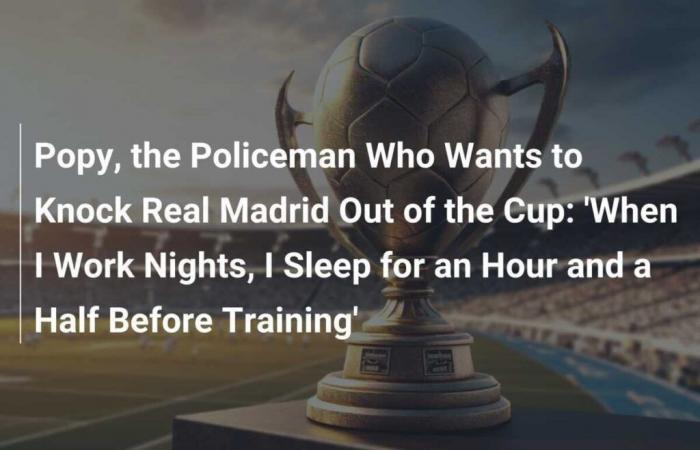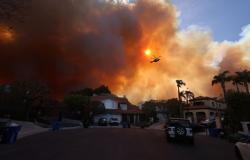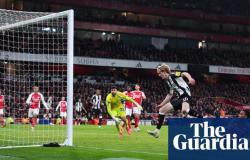
José Pérez combines his role as coach of Deportiva Minera, which will face Madrid in the Copa del Rey, with his job as a local policeman in Los Alcázares.
José Pérez Veiga ‘Popy’ (El Algar, Cartagena, January 7, 1988) is the coach of Deportiva Minera, ready to challenge Real Madrid in the Cup. He juggles football with his position as a local policeman in Los Alcázares (Murcia), and in his dressing room he has players who are around his age. A graduate in Physical Education, he made a name for himself as a coach, leading teams ranging from autonomous categories up to the Segunda RFEF.
How long have you been involved in the sport?
All my life. When I was five years old, my father and grandfather took me to Club Deportivo Algar, and I always played with older players. At six years old, I was already playing with children of seven or eight years old. When I was sixteen, I started coaching seven-year-olds at the club.
Read more:
Andriy Lunin Named in Real Madrid Starting XI for Copa del Rey Round of 32 Match
How long have you been playing?
I stayed at Algar until youth levels and then moved to Pinatar and Deportiva Minera. I spent three years in Preferencia at El Llano del Beal, where we were promoted in our final season, and I played in Tercera, sharing the captaincy with Salva. But that was the end of my playing career at 23 or 24, while I was studying for a master’s degree in Madrid and working on my Level III coaching certification. Then I returned to Algar, played for a year, and we got promoted to Preferred, which marked the end of my journey.
What did you study?
I have a diploma in Physical Education and a master’s degree in team sports as well as another in specific physical preparation for football.
But you stopped playing because you clearly wanted to be a coach?
Read more:
James Rodríguez’s Options After a Disappointing Stay at Rayo Vallecano: Colombia or Argentina?
It was also because I ruptured my cruciate ligament in my last year as a youth player. I continued for several years but I could no longer play correctly.
What position did you play?
I played as an attacking midfielder. I wasn’t bad, although I was average, but at Minera I had a few good years and scored 16 goals in the year we got promoted. In total, I scored 35 goals in two seasons.
How did you discover your vocation as a coach?
It was by myself. I loved playing management video games with my cousin, and we would spend hours pretending to be coaches. Sometimes we played all night.
When did you decide you wanted to be a coach?
We never really realize; we just enjoy where we are. In Algar I was an assistant and physical trainer for Palomeque, who was in Preferente, while I coached the Segunda Autonómica team. At that moment, the opportunity to go to Cartagena presented itself, and that’s when I realized the greatness of it. This is what I love, and I would like to dedicate my life to football because those of us who do it, between training and preparation, dedicate ourselves entirely to it, almost 24 hours a day.
Read more:
Cole Palmer Patents His Goal Celebration and Will Receive Royalties: Which Other Footballers Have Done The Same?
What situation did you encounter in Cartagena?
They also asked us because of the opportunity of the situation, but in these six months we managed to save the team in Las Palmas, which was huge because otherwise I don’t know where Cartagena would be right now . Paco Belmonte and Deseado arrived, injecting a big boost into the club, and look where they are now. After that, the following year, I came back to Algar to be the coach of the Préférence team, and we achieved promotion to Tercera División in that match against Minera where my assistant, Rafa, had a seizure cardiac.
Read more:
UD Almería Ends Bad Streak With Victory
It was a difficult situation.
Indeed. I wouldn’t wish what I experienced at that time on anyone, but in the end, everything ended well.
Who were your coaching role models?
One of my go-to people is Unai Emery for the way he did everything. He stopped being a player, took charge of Lorca, and he’s progressed ever since. Currently, I also admire Jagoba Arrasate for what he achieved at Osasuna; it was quite impressive. I appreciate national products, like Borja Jiménez, who I followed since he was in Cartagena and everything he achieved with Leganés. Imanol Alguacil and Ernesto Valverde are also references who have been doing very good work for a long time. Just look at Réal, one of the teams that plays the most enjoyable football.
Read more:
Van Dijk addresses Alexander-Arnold’s performance amid contract speculation
Which team did you support as a child?
I was a fan of Cartagena and now of Minera. I will never forget that match where Cartagena missed promotion against Córdoba; I was nine years old and my father took me there. These experiences mark and make you a supporter of a team.
How do you combine your work as a local police officer in Los Alcázares with training a semi-professional team?
My colleagues adjust my hours and services. As I can’t work in the morning, I work afternoons and nights, alternately. And on weekends it usually works so that when we play away I don’t have to work, but when we play at home I do. If we play in the morning, I can work that afternoon or night. I don’t sleep much, because sometimes I finish work at six o’clock, I go home around six thirty, I go to bed, and I get up at eight thirty to train. I sleep very little, but the labor pains are worth it.
Read more:
Who are Diego Aguado and Lorenzo Aguado? Academy Products Debuting in Madrid
Have you thought about taking time off?
I arrived in 2022, I’ve been here for three years, and I’m not there yet. Right now my goal is to sleep little.
Why this police work?
Ultimately, we seek stability, and I have had this calling from a young age because I have family in the National Police, the Civil Guard and the Army. I sought stability because I didn’t see a clear path in football. I was in Preferred then, and football is very unpredictable; sometimes we’re at the top, other times we’re not. I hope I can make a living from it in the future, but I couldn’t count on getting fired by a team.
Have you ever been fired?
Read more:
James Rodríguez and a ‘specialty’ that costs him points as a professional footballer
No, I’ve never been fired, but that first time will come one day. They say you’re not a real coach until you’ve been fired the first time. I’m knocking on wood so that this never happens, but I’m keeping my feet on the ground. Right now it’s going well, but I know that could change in a second.
Do you have aspirations to coach at higher levels?
Like I said, I keep my feet on the ground, but obviously when you see the big teams, you always dream of being out there on the pitch and having the chance to be involved in those situations with a Segunda or Primera team.
In Minera you have players who are practically your age. Is it difficult to manage them?
Four or five are 88, and others are 89 and 90, but they are professional players. They came here to help Minera and collaborate to make everything work. It’s very easy to work with them because they believe in the idea that was communicated from the beginning and see it implemented. They believe in us, in the management, and the younger players also bring a lot. We are all united as a group.
Can a coach be friends with a player?
Why not ? These are people on the same wavelength with the same profile. They know how to differentiate when they are on the pitch and when they are not, but I prefer to create closeness and trust with the players rather than being an authoritarian coach. However, one thing I always say is that we should not confuse freedom with laxity. I extend my hand to them; I get along well with them, which, for me, is a way of working where everyone feels comfortable.
What is more complex for you, giving a fine or yelling at a player?
I don’t like giving fines, and when I do, it’s because I have no choice. With the players, both my coaching team and I are demanding; we’re looking for the same goals, and if we have to raise our voices, which I don’t like because it’s about correction, we prefer to do it from a why perspective and providing reasons.
By the way, how many people have called you asking for tickets?
Since the drawing, my phone has been buzzing, but we will have limited tickets that will go to my family and friends, nothing more.
And are you afraid of facing a team of this stature?
No, not afraid; excited and ambitious. I think everyone dreams of facing a Primera team. The match against Alavés was incredible, and now we will play against one of the most decorated teams in Spanish football. We are excited, committed to getting it right, and looking forward to this moment. But in the dressing room we declared that this is secondary; we have to stay focused on the league.
Finally, when did you get the nickname Popy?
It comes from my early days in football because I was the smallest on the team. As I played with older players, they called me Popy because I was the youngest, and I’ve kept that nickname ever since.





